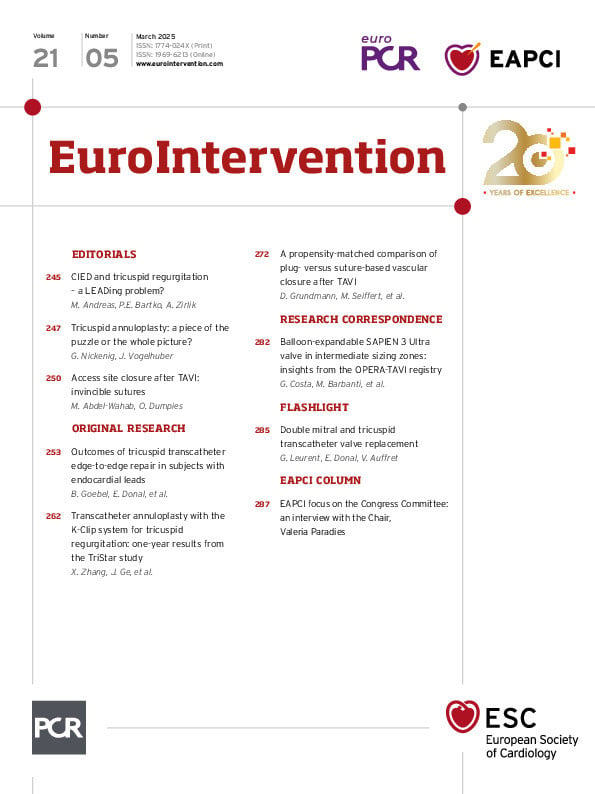The tricuspid valve stepped into the spotlight when interventional therapies were first developed and applied specifically to treat tricuspid regurgitation (TR). While surgical strategies were previously known to have a high mortality, more recent analysis showed improved surgical results due to better understanding of risk profiles, novel risk scores, improved perioperative management and minimally invasive techniques123. Further, intermediate- and high-risk patients have been recently treated by interventional valve repair applying tricuspid transcatheter edge-to-edge repair (T-TEER) or transcatheter tricuspid valve replacement (TTVR). Heart Teams rapidly implemented these novel techniques into clinical practice and provided independent risk scores and improved screening protocols4. Furthermore, advances in imaging technologies (three-dimensional echocardiography and four-dimensional computed tomography) allow specific assessment of the tricuspid valve and the underlying pathological mechanisms.
The LEADing problem
The rapid progress in imaging of and therapy for the tricuspid valve propelled the identification of a novel disease entity, lead-related TR5. The PCR Tricuspid Focus Group initiated an expert review including numerous experts in interventional cardiology, cardiac surgery, imaging and electrophysiology to discuss and develop algorithms...
Sign up for free!
Join us for free and access thousands of articles from EuroIntervention, as well as presentations, videos, cases from PCRonline.com

